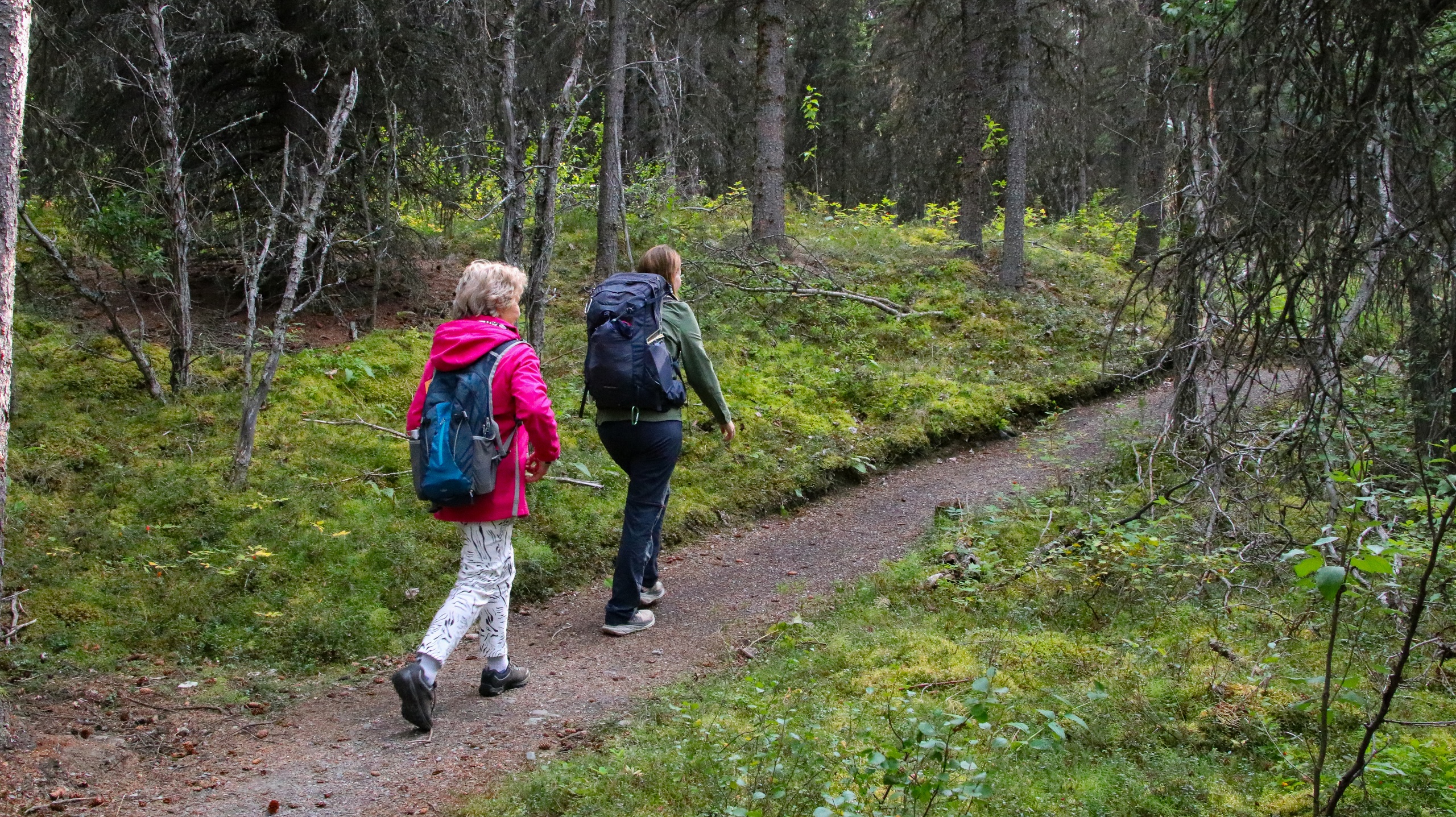Ridges, Ice, and Sky: Hiking Glacier National Park
From cliff-hugging traverses to quiet cedar groves, this is the alpine heartbeat of Montana’s crown jewel.
The day begins where the road surrenders to the mountains. At Logan Pass, the air is thin and clean, and the peaks of Glacier National Park crowd the horizon like a council of stone. The alpine breeze carries a hint of snow even in July, asking if you packed your layers. Above the Going-to-the-Sun Road, a ribbon of trail—The Highline—makes a decisive slash across the slope, daring you to follow.
Trail Wisdom
Start Early at Logan Pass
Parking fills before 8 a.m. in peak season and morning light is kinder on the exposed Highline Trail.
Carry and Know Bear Spray
Keep it accessible on your hip strap and practice removing the safety; make noise in brushy sections.
Mind the Wind on Exposed Ledges
Gusts can be strong on the Highline’s cliff section—secure hats and trekking poles and keep three points of contact if needed.
Use the Park Shuttle Strategically
Ride up early to Logan Pass and hike one-way to The Loop, then shuttle back—no need to retrace steps.
Local Knowledge
Hidden Gems
- •Johns Lake Loop for a quick, mossy forest circuit with river views
- •Rocky Point Nature Trail near Fish Creek for quiet Lake McDonald vistas
Wildlife
Mountain goats, Grizzly bears
Conservation Note
Glacier’s namesake ice is rapidly shrinking; stay on trail to protect fragile alpine plants, never feed wildlife, and pack out all trash.
Established in 1910, the park’s landscapes sit within the traditional homelands of the Blackfeet, Salish, and Kootenai peoples; early tourism was shaped by the Great Northern Railway’s chalets and lodges.
Seasonal Guide
spring
Best for: Waterfalls at peak flow, Quiet west-side forests
Challenges: Snow on high trails, Unpredictable weather
May–June brings roaring creeks and uncrowded lower trails; higher routes like the Highline often remain snowbound.
summer
Best for: Alpine hiking, Wildflower meadows
Challenges: Crowds, Intense sun at elevation
July–September is prime for Going-to-the-Sun Road and high-country traverses; start early and bring sun protection.
fall
Best for: Crisp air and golden larch, Fewer crowds
Challenges: Early snow, Shorter daylight
Late September can be spectacular with glowing western larch; check forecasts as storms can close mountain sections quickly.
winter
Best for: Nordic skiing near Apgar, Snow-draped scenery
Challenges: Road closures, Avalanche terrain beyond groomed areas
GTTSR closes to through-traffic; winter travel requires skills and caution—stick to designated winter routes unless experienced.
Photographer's Notes
What to Bring
Bear SprayEssential
A must in Glacier—carry it within easy reach and know how to deploy.
Lightweight Waterproof ShellEssential
Mountain weather flips quickly; a shell blocks surprise wind and showers.
Trekking Poles
Useful on the Highline’s rocky traverses and for knees on the descent to The Loop.
Water Filter or TreatmentEssential
Reliable water sources exist on some routes, but always treat before drinking.
Common Questions
Do I need a vehicle reservation for Going-to-the-Sun Road?
In peak season, the park often requires vehicle reservations for certain road corridors (e.g., Going-to-the-Sun, Many Glacier, North Fork). Check the NPS Glacier website for current rules and dates.
When does Going-to-the-Sun Road open for the season?
Opening varies by snowpack; most years it fully opens between late June and early July and remains open until fall storms close it.
Is there a shuttle for hikers?
Yes. The free park shuttle typically runs along Going-to-the-Sun Road in summer, allowing one-way hikes like Logan Pass to The Loop.
Are dogs allowed on trails?
No. Pets are not permitted on trails, backcountry, or along lakeshores outside developed areas; they are allowed in campgrounds, parking areas, and along roads.
Can I hike solo in Glacier?
Yes, but travel in groups is safer in bear country. Make noise, carry bear spray, and avoid hiking at dawn or dusk in dense vegetation.
Can I fly with bear spray?
No. Bear spray is prohibited in both carry-on and checked luggage. Purchase or rent locally near West Glacier or return it before flying home.
What to Pack
Bear spray for safety; layered clothing for fast-changing alpine weather; a brimmed hat and sunscreen for high-elevation sun; a compact water filter to refill on long routes.
Did You Know
Going-to-the-Sun Road spans roughly 50 miles across Glacier National Park and was completed in 1932; it’s both a National Historic Landmark and a Historic Civil Engineering Landmark.
Quick Travel Tips
Book lodging months ahead for July–September; check the NPS site for any corridor vehicle reservations; start hikes by 7 a.m. for parking and wildlife viewing; bring cashless payment but don’t rely on cell service.
Local Flavor
After trail time, refuel at the historic Belton Chalet in West Glacier or grab a hearty burger at Glacier Highland. For a local toast, head to Glacier Distilling Company in Coram for small-batch spirits. In Whitefish, the Great Northern Bar & Grill and downtown cafés keep the mountain-town vibe going.
Logistics Snapshot
Closest airport: Glacier Park International (FCA) in Kalispell (~30 miles/45 minutes to West Glacier). Trailhead hub: Logan Pass via Going-to-the-Sun Road. Expect limited cell service inside the park. Day hikes require no permits, but peak-season vehicle reservations may be needed for popular corridors; check current NPS rules.
Sustainability Note
This park anchors the Crown of the Continent ecosystem—keep 100 yards from bears and wolves, 25 yards from other wildlife, stay on durable surfaces, and pack out everything you bring in.
Continue Reading

Canyon Wave: Rafting Denali’s Glacial Heart on the Nenana River
The Nenana River doesn’t whisper—it urges you forward. On the Canyon Wave run, you’ll punch through crisp, glacial rapids beneath Denali’s ramparts, trading roadside views for a front-row seat to Alaska’s wild hydraulics. Cold water, big smiles, and a canyon that knows how to keep pace.
Healy, Alaska

Chasing Light in Denali: An Afternoon Hike Across Taiga and Tundra
Trade the tour bus for tundra. This guided afternoon hike threads from shadowed spruce to open ridgeline, where Denali’s valleys breathe wide and the wind calls the cadence. Come for the views, stay for the stories beneath your boots.
Denali Park, Alaska

